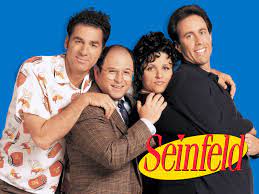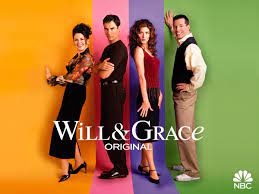"When does something truly become 'popular'?
And I don't mean 'popular' in the sense that it succeeds; I mean 'popular' in that the specific things incontrovertible popularity is the most important thing about it.
I mean 'popular' in the way that Pet Rocks were popular in 1975,


or, the way E.T. was popular in 1982,



or the way Oprah Winfrey was popular for much of the nineties.

The answer to this question is both obvious and depressing: Something becomes truly popular when it becomes interesting to people who don't particularly care.
"You don't create a phenomenon like E.T. by appealing to people who love movies. You create a phenomenon like E.T. by appealing to people who see one movie a year." Chuck Klosterman, from But What If We Are Wrong: Thinking About the Present as if it Were the Past." One of the central themes of my journey with all of the arts is to get as close as is possible to a truly aesthetic involvement with the arts.
What this means is that I start from the presupposition that there is no necessary and inevitable connection between an artwork's quality and its popularity, or units sold.
Some of the most famous things in the world happen to justify their fame while others equally famous are quite simply not worth all the love, yet beloved all the same.
Conversely some of the greatest things ever made die in abject obscurity while some of the worst things never become known. I have been trying to get as close as is possible to the thing itself with at least partial independence from its reception. I did not know, say when I was in my twenties or even my thirties, that this was a central theme.
I created the music that I wanted to make and consumed the art that I wanted to consume.

While I was intensely interested in writing on the arts - what gets called criticism - how beloved something was did not play a final or decisive role in establishing what I considered ultimately valuable, or not. In the 1990s I was very alienated from what gets categorized as popular culture.
From 1992 up until '99 or 2000 I did not have television reception; I used the television as an electric vehicle on which to watch movies. I never saw the O. J. Bronco chase and I never watched the show Seinfeld; once a woman I was dating wanted to take a break from, shall we say more intimate activities, and watch the final episode of Seinfeld and was horrified that I did not have the means to watch it.
Although I do consider Curb Your Enthusiasm one of the greatest creations in television history, you could say that was an interest that did not take into account a major proportion of Larry David's career. I have had to correct for these gaps in my knowledge slowly and surely over the past twenty years.

But although I did finally catch up with Seinfeld, I have still not seen a lot of major television of the past thirty odd years, including Friends, Will And Grace, and so on.
Not having television reception will do that. I did reinstate television reception in order to watch That 70s Show, even as I abhorred (and still do) the station in which it was ensconced.

The reason for these gaps in my attention had notching to do with any particular stand against popular culture in general or television in particular.
There is an irony here perhaps.
They were ways of organizing my time and reality so that I could limit what I would focus on. One of the positive side effects of this is that I spent an enormous amount of time on highbrow culture in general and became quite literate in it.
But I always suspected that there were things on which I was missing out that had to be good and even great. It was basically my system of organizing reality and the organizing principle was that I ought to spend time with what I thought was the best of culture. What has changed since then is that I have learned that the most important thing is how something appears to me and that this appearance is the only way to really form any opinion.
From 1999 into the 00s I have tried to let this response for which I don't have the best articulation or explanation, be my guide, rather than the identity or narrative of artistic creators and the symbolic functions of their work in the larger culture. I write this at a historical moment when these aspects of art are not only what is most cared about by what appears to be a majority but in certain respects is something like a definition of art itself.
This makes art into a "scene". But going back to what I call a response, if we were talking about music it was how the music sounded to my ears that mattered.
An interesting development when I put out of my head all ideas about the meaning of art in society was that my heart because very wide and I could feel myself becoming more astute about human life in general.
I started to feel the value in some works of commercial culture and this in turn helped me to feel a greater bond towards humanity in general.
This podcast is essentially a durational document - in real time - of this journey.
It was also at the time when I learned of something filmmaker Michelangelo Antonioni told pianist/composer Herbie Hancock while the latter was doing the score for Antonioni's Blow-Up - still one of my favorite films and musical scores of all time.

"There is no such thing as art. There is only this painting, this piece of music, that sculpture. And it either resonates with you or it doesn't. There is no such thing as art; there are only works." Michelangelo Antonioni
This particular post happens to coincide with my birthday month.
After four years of being away from my still beloved East Coast, I shall be visiting there around the period when this post lands. Much like creating any piece of art I have to make certain plans long ahead of time yet a great deal of what I am to experience cannot be known in advance with any certainty whatsoever.
There will be mystery.
Furthermore after the trip is done, after I have experienced whatever I am to experience, there will still be mystery which I believe it is that way to make life interesting and not frustrating. (If this is registered as frustrating this is chiefly a problem with perception if I may be so blunt).
This aspect of life is quite like my improvised music.
And one of the things I love most about Blow-Up the movie is that it is a mystery that is never a genre: it is a mystery without a solution.
And I think our life is like that too.









Comentarios